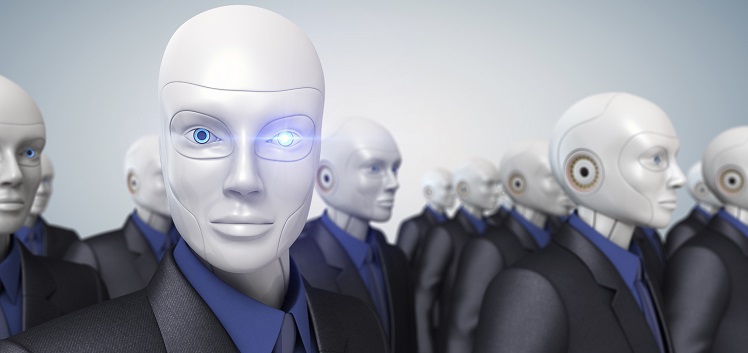Articles
The Robots Are Coming! Is Your Treasury Job Safe?
- By Andrew Deichler
- Published: 10/5/2017

BARCELONA -- One of the biggest controversies surrounding artificial intelligence (AI) is whether it will ultimately make various jobs obsolete. During the EuroFinance International Treasury Management Conference, two experts on robotics provided insights on just how safe corporate treasury jobs will be as AI gradually works its way into the finance function.
George Zarkadakis, digital lead for Willis Towers Watson, said he sees “two stories” emerging when it comes to AI. The first story is that advances in technology have enabled many of the manual, tedious, boring processes that corporate treasury professionals do to be automated. These technologies are not necessarily AI but they use elements of it, and they are intended to make practitioners’ jobs easier, rather than make practitioners themselves obsolete.
More interesting—and perhaps more threatening—is the “second story” of AI, Zarkadakis explained. This is where data analytics and true AI come in; these technologies allow practitioners to go beyond their typical processes and become more creative. “Let’s say you want to do analysis for credit risk,” he said. “But imagine a system that goes beyond your structured data; it goes into dark data. It is able to predict risk that is not in your structured data. That is the opportunity here. It can help you to be more of a creative person.”
While some treasury professionals might not put a lot of value into being “creative,” Zarkadakis believes that they may have to if they want to survive in this environment. He sees a shift in treasury from specialists to generalists. “The more of a specialist you are, the more likely you are to be terminated,” he said. “The more of a generalist you are, the less likely you are to be terminated. If you want to survive in this world, you have to start understanding big data. You have to be a people person. You have to be a business partner. It’s less about things like portfolio analysis, which will be automated.”
Zarkadakis sees treasury departments overall embracing this change because they will have to. And this goes beyond treasury; entire companies are at risk if they don’t evolve with the times. Complacency is death in the corporate world. “If you’re given the opportunity to just improve your products and your services, as opposed to reinventing your business, you obviously choose the less risky option. The problem with that is that others are disrupting your market, and you will be obsolete by default,” he said.
This is a huge issue and companies are trying to solve it in a variety of ways. “One way is to build another company next to yours with a completely different culture and sunset one while building on the other,” Zarkadakis said. “Some companies are doing that out of desperation. Another is to gradually create cross-functional centers of excellence that completely reinvent what you do.”
Adam Rutherford, the scientific adviser on AI and robotics for films like “Ex Machina” and “Life,” added that the transfer of general talents into automation has a tendency to create artisanship. Clever businesses and employees may identify areas where they can find opportunities outside of the ones they’ve traditionally operated in—sometimes by creating a resurgence in areas that were once viewed as obsolete.
Rutherford used vinyl records as an example; more people are buying it now than at any time since the mid-1980s. The digitalization of music has made compact discs nearly obsolete, but people still buy vinyl because they consider the sound quality to be superior to a download from iTunes. “If there are areas where people fear for jobs where they are obvious targets—is there a parallel stream outside of it that could never be automated?” he asked.
Copyright © 2024 Association for Financial Professionals, Inc.
All rights reserved.

